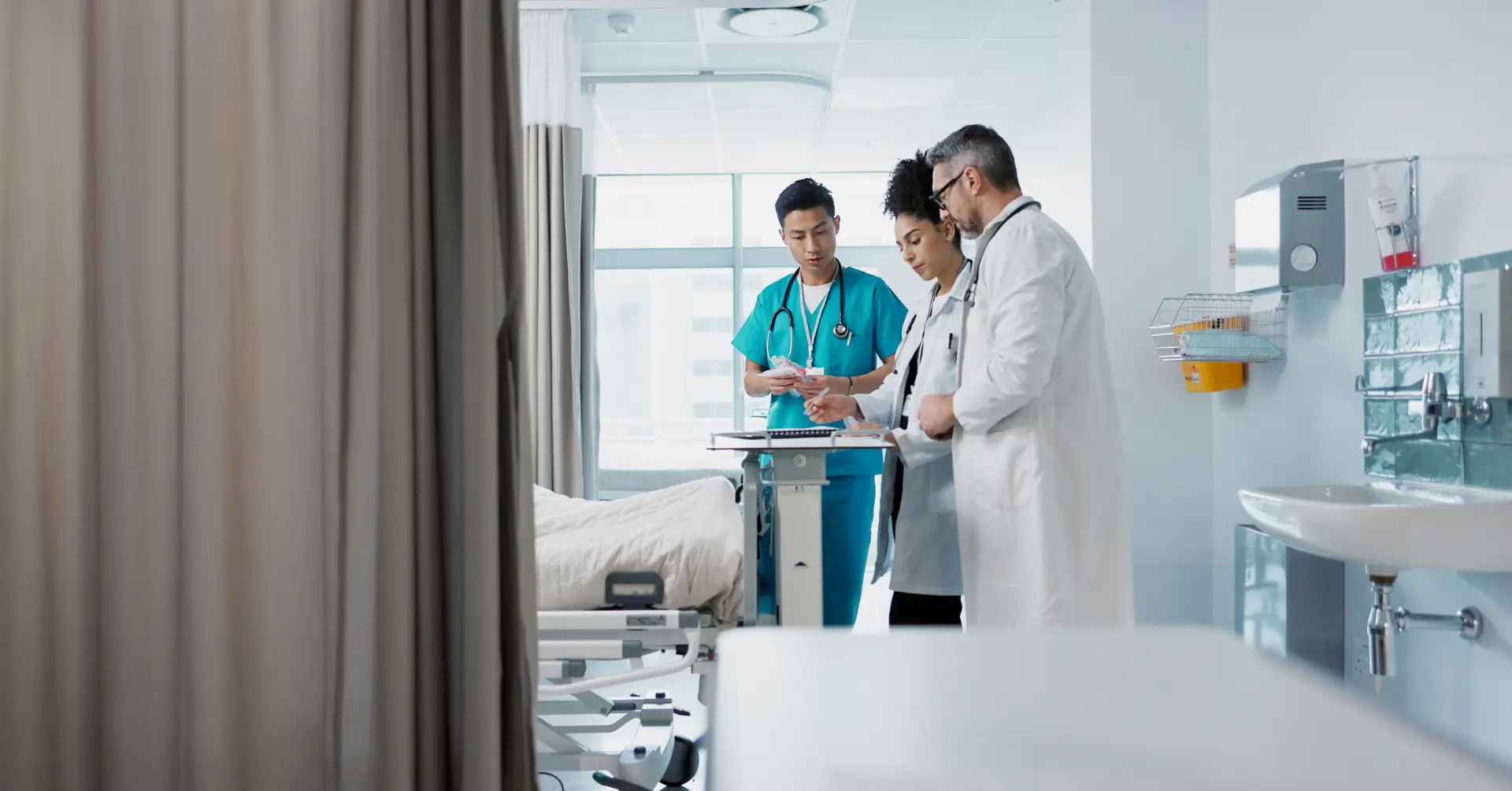It seems that lately, with every week that passes, there is more chaos in the world. Apparent random acts of violence fill emergency departments with patients experiencing severe, life-threatening trauma. It’s our job to care for them — but there is a cost.
The strain of dealing with incidents like those most recently seen in Orlando, Dallas, and Baton Rouge is enough to put any doctor’s emotional health at risk.
But the strain is not limited to providers who have experienced such events first hand. The sense of foreboding (“Where will the next massacre take place?”) and gnawing concern (“Could such a thing happen here?”) can cause anyone to experience bouts of anxiety and fear.
How, then, do we cope, both in living with the uncertainty that disaster could strike at any moment, and, if and when it does, the psychological and emotional trauma that will inevitably follow in its aftermath?
Prepare Your Team
One way is to prepare in advance by conducting mass shooting and disaster planning drills. Not only can this help save lives, but it will also provide you with a sense of confidence that you and your team can respond quickly and skillfully to any calamity you may face.
In the wake of the Orlando nightclub shooting, the Orlando Regional Medical Center (ORMC) treated 44 victims.
Although it’s fair to say that no hospital could be completely prepared for the results of such a vicious attack, ORMC had been conducting weekly emergency preparedness drills, to do its best.
“We do weekly trauma simulation, regular all-hospital preps, as well as city-wide simulations that cover all possible situations,” a hospital spokesperson told U.S. News (as reported by FierceHealthcare).
Remarking on the inevitability that such attacks will occur, Jay Kaplan, M.D., president of the American College of Emergency Physicians, told the U.S. News & World Report, “It’s not a matter of if, it’s a matter of when. That’s a sad commentary in that it’s reality.”
With all that is at stake, conducting mass shooting and disaster planning drills on a regular basis is no longer an option for emergency or even hospital medicine providers. It’s also a way to foster emotional wellbeing should the time come. Dr. Stephen Nichols, MD, SCP Chief Clinical Innovation Officer and Chief Medical Officer for the Virtual Clinical Medical Group, recommends that even “routine” disasters be recognized and run as disasters.
“In my facility, we call a disaster when an event (or two at a time—such as multiple MVAs) overwhelms our usual capabilities and capacities,” explains Dr. Nichols. “I’m not talking about a flu surge, but some identifiable event. One example was a fire at a local nursing home. We then analyze it and learn what we can from it. An important aspect of this is the reduction in reluctance to call in help when it is needed. If the only doctor in an HM program falls ill, then that is an internal disaster—the facility and the company need to know immediately. It is critical that the capabilities and capacities at the time be recognized and compared to the situation, regardless of the specialty.”
Prepare Yourself
Disaster preparedness aside, ER doctors and staff need to prepare themselves, individually, to defend against the effects of trauma.
No provider is immune to the emotional toll a disaster can take, particularly when events occur in rapid succession — and therefore overwhelming the available resources — as was the case with ORMC.
Consider the results of a study on the impact of trauma on health care providers, conducted by Alan Jones, M.D., an orthopedic surgeon at Baylor University Medical Center in Dallas, and his wife, Ann Marie Warren, Ph.D., a clinical psychologist at the same hospital.
The couple found that, after experiencing a traumatic event, about 20 percent of surgeons had symptoms of post-traumatic stress disorder (PTSD), and roughly two-thirds had at least one symptom of secondary traumatic stress (STS).
The Dallas Morning News, reporting on the study, said that symptoms of STS mimic PTSD.
“Doctors and emergency responders with STS can suffer sleep disturbances and anxiety, and they can find themselves reliving painful memories,” the newspaper said.
(By the way, Dr. Jones knows first-hand what a mass shooting crisis looks like. He treated Shetamia Taylor, the woman who was shot in the leg by the Dallas sniper while attempting to protect her children.)
It’s not unreasonable to think that these stresses, if left unrecognized or unmanaged, could carry long-term negative consequences.
If that sounds too melodramatic, mull over what an emergency medicine physician writing for the blog KevinMD had to say about the stresses of routine practice in the ED:
“A normal day at my job is hard: I’m running nonstop for 8 to 12 hours, I’m constantly interrupted, I have patients making demands of my attention and empathy, I’m saturated with information and need to make rapid decision without adequate information, and I know that if I make an error or miss some important piece of information, the human, professional and financial consequences can be disastrous. It’s a pressure cooker.”
And that’s a day where things go well!
Now, combine the psychological toll that day-in, day-out practice can take with the kind of crises that we see reported continually in the news, and you’ve got the potential for emotional hardship, both in the short-term and over time.
What can you do to protect yourself? The KevinMD writer shared this advice:
Practice Professional Detachment
“This is an unnatural skill in which you must suppress your innate sympathy for the suffering experienced by a fellow human being,” the writer said. “[But it] is a necessary skill if you are to function in the medical environment.”
He added that, while compassion and empathy are needed, they must be doled out in “measured doses” because of the emotional demands the job requires.
Unpack the Experience
The writer also advised that providers take the time to “unpack” emotionally by turning the case over in their heads and exploring any unpleasant feelings so that “you can come to a resolution and move on.”
Debrief the Team
Another way to unpack is by holding informal debriefings with the entire team.
“Talk through the case, review the medicine and the science, review your actions and outcomes, and your emotional response to the situation,” he advised. Dr. Nichols echoes this important point, “If the person in charge is struggling, then others on the team are bound to be too, so seek help for everyone. Simply talking about it in an ad hoc department meeting may be enough, but if it’s not, you’ll be able to find out at that time.”
Maintain Perspective and Stay Positive
The writer also noted how maintaining the proper perspective and keeping a positive attitude can protect emotional health.
He advised that providers take the time to think about the difference they make in people’s lives and the privilege and honor it is to be allowed to care for patients.
“We have respect and status in society, and are quite well paid for it,” he said. “Many people would give their right arm to be where you are.”
Seek Professional Help
He concluded by recommending that those who are “really having trouble” get professional help.
“If you’re self-medicating, or if you are bringing work home to the point it’s affecting your family, be humble and realize that doctors can benefit as much as any other patient from psychological counseling and support,” he said.
Words of Encouragement from Dr. Randy Pilgrim, Enterprise Chief Medical Officer, SCP
Perhaps the best way to end a post on how doctors can protect themselves emotionally when crisis strikes is to take encouragement from the words expressed by Dr. Randy Pilgrim, SCP’s enterprise chief medical officer. He reflected on the tragedy that struck SCP’s home base, Lafayette, La., in 2015, when a gunman opened fire in a movie theatre, killing two people and injuring 12 others.
Dr. Pilgrim said:
“Amid the chaos, our emergency response network delivered on its mission very well. Bystanders, police, fire, and EMS performed beautifully, and carried out their responsibilities as designed. Experienced emergency physicians and nurse practitioners collaborated with their hospital colleagues. They assessed injuries, provided treatment, and comforted families.
“The system worked, and the right teams showed up beautifully. I’m not much for heroes, but these people got it done. I’m grateful for these men and women — your colleagues — and for those of us who stand behind them.
“I am proud to be part of a profession that is trained and prepared to manage things like this so skillfully. And I’m grateful for all those who support them along the way.
“We cannot take an ounce of pain away from those who suffered unspeakable loss. But once again, we delivered much-needed care almost without blinking an eye. (Even if those eyes became tearful later.)”






